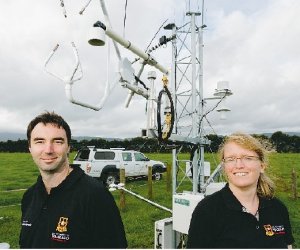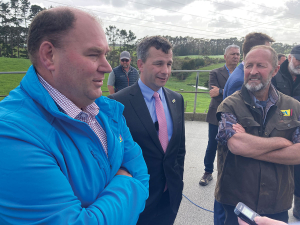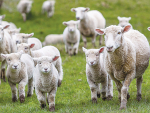On a Waharoa farm two machines are 20 times a second recording the amount of carbon dioxide going in and out of the soil; this will continue at the same rate for the next year.
Professor Louis Schipper, Dr David Campbell, Dr Susanna Rutledge and technician Aaron Wall are behind the testing, under the aegis of the New Zealand Agricultural Greenhouse Gas Research Centre paid for by the Primary Growth Partnership.
They know the amount of carbon in dairy soils has reduced in recent years but they don’t know if it is still declining or has hit a plateau. And they want to find out what management practices will best restore those carbon levels.
The team must also factor in how much
carbon is going out in other ways, such as milk or feed imports, Schipper says.
“There is a lot of carbon there and we are trying to measure a small change. You can’t just measure the total amount of carbon in the soil and come back a year later and measure it again.”
Schipper likens the methodology to a household budget. “It’s like adding up all your bills for the year to work out how much you’ve spent but forgetting the Visa bill. You must include all the components.”
The frequency of the testing, averaged out every half hour, will give them precise measurements and comprehensive data to determine how best to tackle the issue.
Then comes the clever bit – one of the towers at the farm will have one of its farm management practices adjusted and the results compared. The first adjustment will include greater plant diversity in the pasture to determine whether that makes a difference.
“There is good reason to believe this will work, but equally we might have to say that didn’t work and try something else,” Schipper says.

















